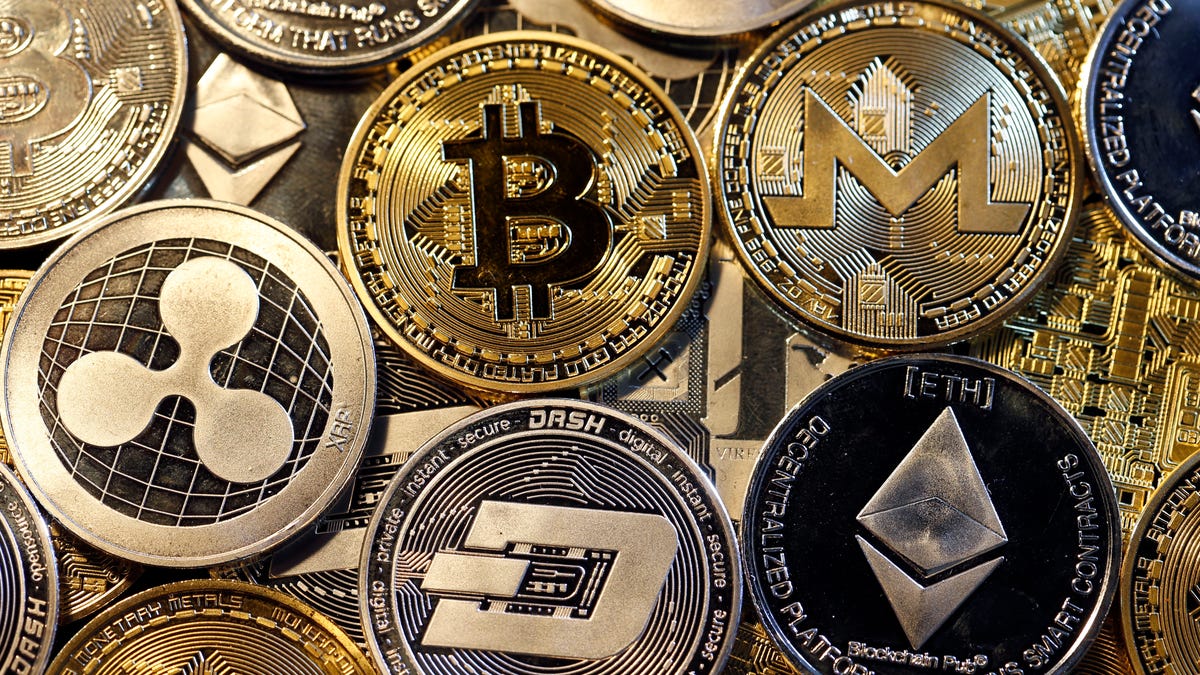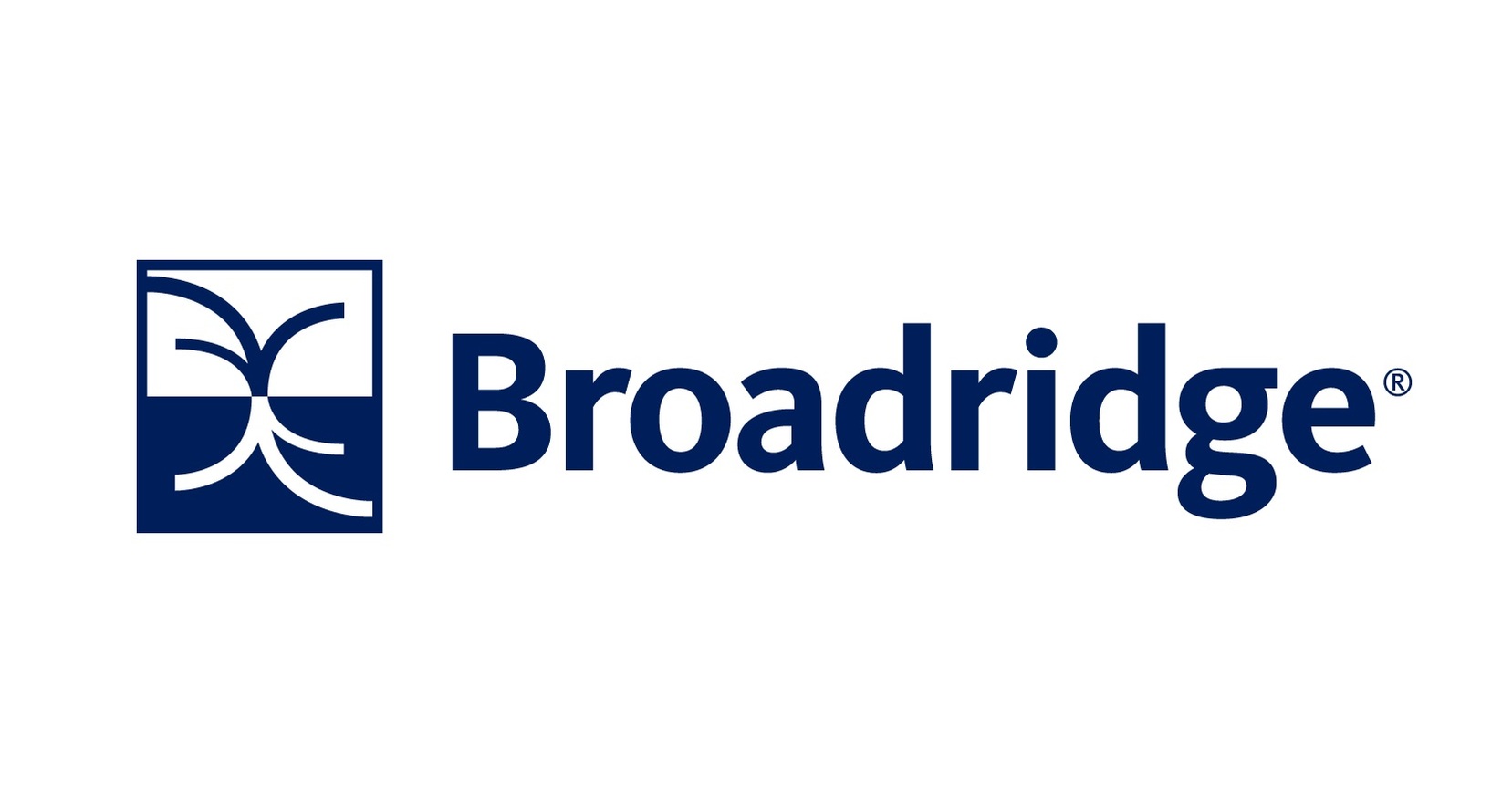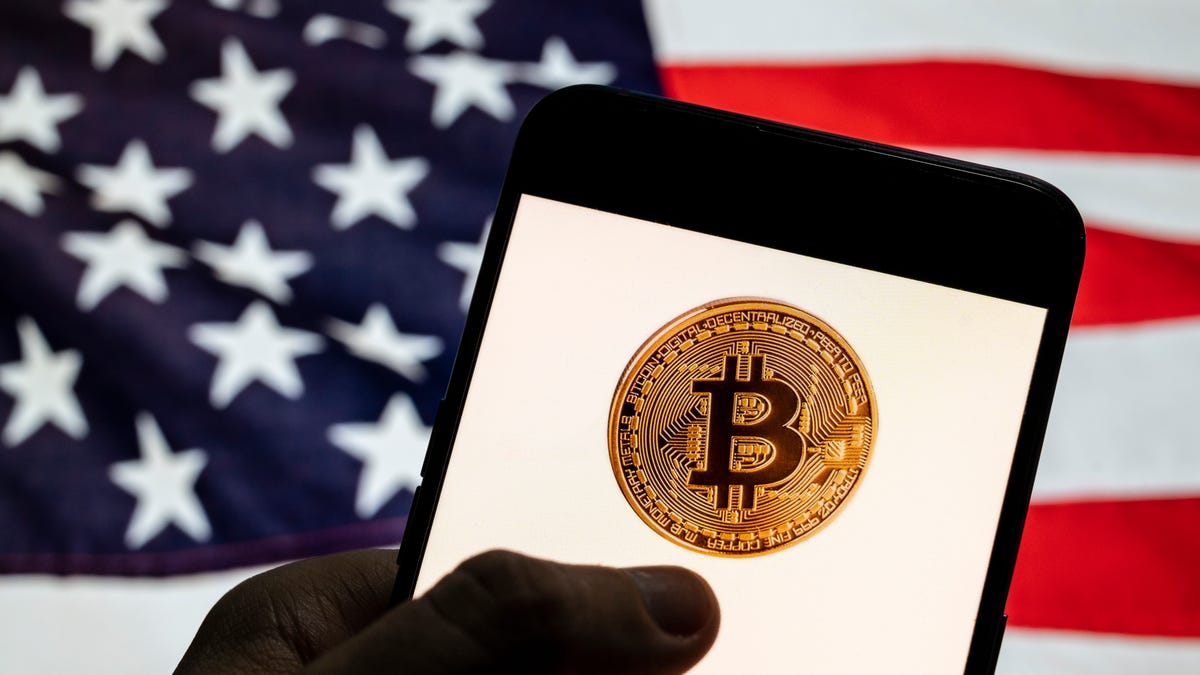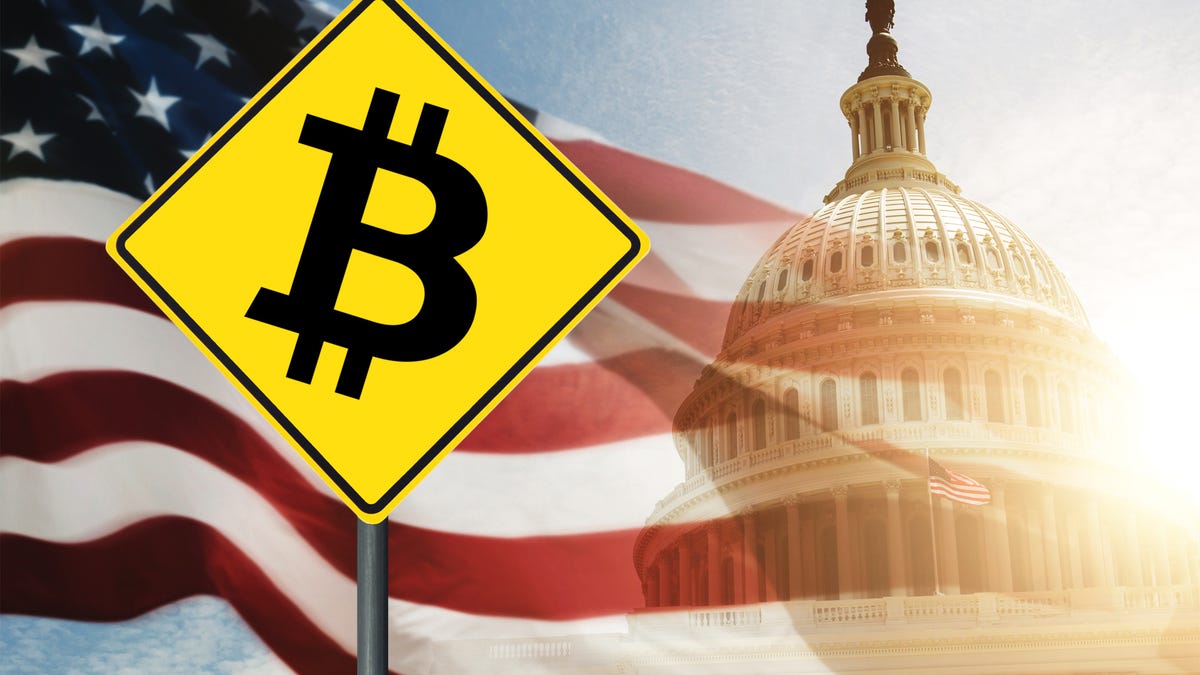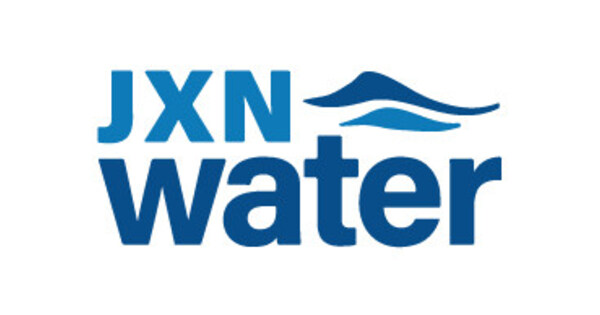Finance
Explore the Emerging Future of Digital Intelligence at the Digital Finance Forum 2023, Now Underway!

BEIJING, July 2, 2023 /PRNewswire/ — The Report to the 20th National Congress of the Communist Party of China highlighted the need to accelerate the development of the digital economy, further integrate it with the real economy, and build internationally competitive digital industry clusters. Besides, it presented significant plans for the growth of the digital industry, providing a strategic roadmap for further advancing China’s digital economy. Digital finance, as an important support for the development of the digital economy, is a vital link for the digital reform of the entire industry. In order to further promote the development of digital finance in Beijing, the Digital Finance Forum 2023 will be held on July 6 in the Beijing Banking & Insurance Business Park in Shijingshan District. This Digital Finance Forum, organized by the Shijingshan District People’s Government of Beijing Municipality and Asia Digital Group, holds significant prominence within the Global Digital Economy Conference 2023.
The forum focuses on how to drive financial innovation and digital strategic upgrades under the new dual-cycle pattern, and help the construction of a new digital financial ecosystem, striving to open a new era of high-quality development of fintech and continue to enhance the international influence of Beijing’s digital economy.
Bring together global resources to create a new highland for digital finance in Beijing
As industries and enterprises increasingly embrace cloud, digital, and intelligent technologies, the concept of digital finance has evolved to foster collaborative development, symbiosis, win-win situations, and value creation. How to transform development concepts into industrial practice to help the development of the digital economy has captured attention across various sectors.
Heads of international financial organizations, senior experts, scholars, and business leaders from more than 10 countries and regions including the United States, Germany, New Zealand, Austria, Sri Lanka, and Slovenia will gather at the Digital Finance Forum 2023. With “Digital Intelligence Is Awaiting Us” as the core, our discussions center on fostering digital financial market entities, promoting digital financial innovation and development, and expanding digital financial scenario applications. This will involve exchanging ideas, fostering collaboration, and establishing interconnections among stakeholders involved in digital finance, modern finance, financial technology, and digital currency. By leveraging data as a fundamental element of production and harnessing digital technology as a catalyst, we aim to facilitate the seamless integration of enterprises, universities, research institutes and end-users. This collaborative effort will expedite the realization of data value and create a force that propels fintech forward.
Beijing stands at the forefront of the global digital economy, benefiting greatly from its comprehensive approach that combines policy guidance, factor utilization, regional coordination, and integration and upgrading. To further enhance its progress, Beijing has introduced the “Beijing Digital Economy Promotion Regulations” this year, designed to provide a legislative framework for its digital economy initiatives. These regulations explicitly highlight that digital finance has ushered in new development opportunities by promoting the establishment of a robust digital financial system, supporting financial institutions in their digital transformation efforts, and facilitating the development of inclusive finance through data fusion applications.
In recent years, Shijingshan District has made great efforts to create a new highland for the development of digital finance, evidenced by the establishment of a number of national financial infrastructures such as the Financial Information Technology Innovation Ecological Laboratory, the National Banking and Insurance Industry Information Data Center, and the National FinTech Evaluation Center. Digital finance has emerged as a significant driving force, enabling a new wave of high-quality development in the regional economy. The upcoming Digital Finance Forum will play a pivotal role in fostering the consolidation and growth of the modern financial industry in Shijingshan District. Moreover, it will facilitate the expansion of openness and innovation within the realm of modern finance, thereby establishing an exceptional hub for advancing digital financial development in the capital city.
Build an international cooperation platform to promote the high-quality development of digital finance
While discussing the trend of the global financial industry, this Digital Finance Forum has built a large platform for the interaction, display, exchange and cooperation of global resource with rich activities, so as to enable the development of the capital’s digital economy and the building of a digital financial highland in Shijingshan District.
This forum has established debut and project signing initiatives to effectively highlight and promote exceptional products and services in the digital finance industry. Through preliminary collection and screening, a selection of highly innovative and pioneering digital financial products will be unveiled during the event. The forum aims to enhance the visibility of these debut products and significant contracted projects, ultimately contributing to their successful transformation, signing and landing. In addition, the business investigation activity in Shijingshan District will be organized, bringing together representatives from various entities such as governments, embassies in China, members of the Digital Finance Think Tank of Shijingshan District, overseas innovative enterprises, enterprises invested by IDG, financial institutions, and investment institutions. This collaborative effort aims to pool diverse perspectives and collective dedication, resulting in valuable recommendations for the development of the district. Furthermore, it serves as a catalyst for fostering two-way exchanges between governments and enterprises, as well as promoting domestic and foreign cooperation. Ultimately, this initiative will play a pivotal role in accelerating the progress of digital finance and achieving high-quality development.
This Digital Finance Forum breaks the boundaries of time and space through the cloud, in such forms as exhibitions, conferences, negotiations, visit to exhibitions, services and docking, closely linking representatives from all parties around the world. The cloud platform enables live streaming of the forum, interactive discussions, demand publishing, online negotiations, and resource docking. The bilingual services can link global resources in digital finance to achieve online transaction matching and intelligent demand matching. What’s more, the Cloud Exhibition of Digital Financial Achievements will cover the new achievements in the development of modern financial industry in Shijingshan District, and the innovative ideas for financial development of the “two zones”. Important innovative achievements such as TechFin, Green Finance, Industrial Finance, Financial Security, Financial Services, and Information Technology will be unveiled.
This Digital Finance Forum, organized by the Shijingshan District People’s Government of Beijing Municipality and Asia Digital Group, holds significant prominence within the Global Digital Economy Conference 2023. Furthermore, it serves as a highly esteemed platform dedicated to facilitating international collaboration in digital finance. The Global Digital Economy Conference 2023 will be staged on July 4-7, 2023 in Beijing. It is hosted by People’s Government of Beijing Municipality, National Development and Reform Commission, Ministry of Industry and Information Technology, Ministry of Commerce, Cyberspace Administration of China, and China Association for Science and Technology, and organized by Beijing Municipal Bureau of Economy and Information Technology, People’s Government of Lhasa Municipality, Chaoyang District People’s Government of Beijing Municipality, China Association of Communication Enterprises, China Academy of Information and Communications Technology, cctv.com and Asia Digital Group.
The Digital Finance Forum of the Global Digital Economy Conference 2023 is about to commence, and we look forward to working with you to delve into the exciting realm of the emerging digital intelligence.
SOURCE Asia Digital Group

Finance
RedSea Exchange: Setting the Standard for Secure Financial Services in Australia

SYDNEY, AUSTRALIA / ACCESSWIRE / January 11, 2025 / RedSea Exchange, a trusted leader in Australia’s financial services sector, is proud to reaffirm its dedication to providing top-tier solutions in fixed-term deposit management, bond trusteeship, and escrow services. With over 20 years of industry experience, RedSea Exchange has become synonymous with security, transparency, and reliability.
In an era where financial integrity is paramount, RedSea Exchange offers a seamless approach to managing critical investment instruments. The company’s expertise as a trustee for fixed-term deposits and bonds provides clients with the assurance that their assets are safeguarded and managed with precision.
Elevating Security and Trust in Financial Transactions
RedSea Exchange’s escrow services streamline complex transactions, providing a secure intermediary to protect both parties’ interests. These services are designed to ensure smooth and efficient processes, offering personalized solutions that cater to the unique needs of investment banks and financial institutions.
A Legacy of Ethical Excellence
As an established name in Australia’s financial landscape, RedSea Exchange operates with a steadfast focus on transparency, ethical practices, and client engagement. The company’s mission is to build enduring partnerships by fostering trust and delivering exceptional service.
Looking Ahead
In response to the evolving needs of the financial sector, RedSea Exchange continues to innovate, enhancing its services to support the growth and success of its clients. By combining industry expertise with cutting-edge solutions, the company is well-positioned to navigate the dynamic financial landscape.
About RedSea Exchange
RedSea Exchange, a division of RedSea Money Transfer and Exchange Pty Ltd, has been a cornerstone of Australia’s financial services for over two decades. Specializing in fixed-term deposits, bond trusteeship, and escrow services, the company is committed to delivering secure and reliable financial solutions that empower its clients.
For more information about RedSea Exchange and its services, visit www.redsea-exchange.com.
Contact Information
Website: www.redsea-exchange.com
Company Name: RedSea Exchange
Contact Person: Emily Johnson
Email: Emily@redsea-exchange.com
SOURCE: RedSea Exchange
View the original press release on accesswire.com
Finance
Addressing Climate Challenges: The Role of Research in Climate Finance

Threatening ecosystems, public health, and economic stability, climate change remains one of the biggest worldwide issues of the twenty-first century. Among the major hazards the United States faces are changing sea levels, more violent storms, and disturbances in food output. Managing these risks and enabling the shift to a low-carbon economy depend on targeted investments in mitigating, adapting, and resilient building—that is, climate finance. The economic effects of climate change on the United States are discussed in this paper together with a discussion of significant policy proposals and an emphasis on ongoing research and innovation in climate finance.
The Economic Consequences of Climate Change in the U.S.
Extreme weather events now occur far more frequently and with far higher intensity, resulting in significant financial losses. Rising sea surface temperatures helped Hurricane Harvey cause before unheard-of flooding in Houston in 2017. One of the most expensive natural disasters in U.S. history, the damages topped $125 billion (National Oceanic and Atmospheric Administration, NOAA.). Likewise, California’s ongoing droughts brought on by rising temperatures and less precipitation have stoked terrible wildfires that have destroyed infrastructure and displaced whole populations.
Without major adaptation strategies, yearly damages from hurricanes and coastal floods might reach $500 billion by 2025, according to a 2023 analysis in Nature Climate Change. This emphasizes how urgently studies on financial instruments meant to help reduce economic losses—such as insurance products and climate bonds—should be conducted.
Especially in places like California and the Midwest, climate change has upset established farming cycles. Extended droughts and severe storms have lowered crop harvests and raised manufacturing prices. For instance, the strong windstorm known as the 2020 Midwest derecho damaged about $11 billion worth of crops, including corn and soybeans (U.S. Department of Agriculture, USDA). Food security and affordability will remain at risk without focused investments in climate-resilient agriculture including enhanced irrigation infrastructure and drought-resistant crops.
Rising temperatures both directly and indirectly endanger health. Particularly among susceptible groups like the elderly and those from low-income areas, heat waves raise the frequency of heat-related diseases. Furthermore, moving to new areas as warming increases the habitat of disease-carrying insects are vector-borne diseases such as Lyme disease and West Nile virus. A report from The Lancet Planetary Health claims that tackling these increasing health hazards calls for coordinated plans combining public health preparedness and investments in green infrastructure meant to lower urban heat island effects.
Policy and Financial Mechanisms in Climate Action
To lower greenhouse gas emissions and advance climate resilience, the United States has instituted many historic laws. Allocating $369 billion to renewable energy and environmental projects, the Inflation Reduction Act (2022) marks the highest federal investment in climate change. Important clauses cover tax incentives for electric cars (EVs), renewable energy generation, and energy-efficient building improvements (Congressional Research Service, CRS). The Act seeks to hasten the acceptance of sustainable technologies by providing private sector innovation financial incentives.
The Biden government also rejoined the Paris Agreement, pledging a 50–52% decrease in greenhouse gas emissions from 2005 levels by 2030. Investments in climate adaptation, clean energy infrastructure, and carbon sequestration technologies have top priority among federal agencies including the Environmental Protection Agency (EPA) and the Department of Energy (DOE).
Advancement of climate action has been much aided by state and municipal governments. To cut carbon emissions and set a target of 100% renewable energy by 2045, California has instituted a cap-and-trade program aiming at growing the infrastructure supporting renewable energy, New York has started bold clean energy initiatives. Urban cooling techniques and flood fortifications have been used in cities including Boston and Seattle to shield citizens from climatic effects. These municipal initiatives show how important multilevel government is for tackling environmental problems.
With wind and solar power making up a rising portion of electricity generation, the United States has achieved notable advancement in the acceptance of renewable energy. Texas leads the country in wind energy; California stays at the top in solar power. Particularly in Massachusetts and New Jersey, offshore wind projects spread throughout the East Coast are expected to greatly increase the nation’s renewable energy capacity.
The energy transformation revolves mostly around technological innovation. While carbon capture and storage (CCS) technologies are being developed to lower emissions from industrial activity, advances in battery storage systems are improving grid dependability. Achieving net-zero emissions worldwide would depend on increasing CCS and hydrogen fuel technologies, per a 2023 International Energy Agency (IEA) assessment.
Opportunities and Challenges in the Green Economy
The shift to a green economy presents significant employment generation possibilities. Two of the fastest-growing jobs in the United States according to the Bureau of Labor Statistics (BLS) are solar panel installers and wind turbine service technicians. A McKinsey analysis projects that investments in renewable energy, sustainable agriculture, and energy-efficient infrastructure could provide nearly 9 million additional employments by 2030.
Moreover, green infrastructure projects—such as public transit networks and energy-efficient building retrofits—have the potential to boost local economies while lowering emissions. Through reduced energy expenditures and higher productivity, the U.S. Green Building Council projects that every dollar spent in energy efficiency results in up to four dollars in economic benefits.
Notwithstanding great progress, considerable obstacles still exist. While technological issues including the scalability of CCS and the intermittency of renewable energy sources must be resolved, political polarization has hampered the passage of comprehensive climate legislation. Another important problem is making sure workers in sectors dependent on fossil fuels have a fair changeover. To reduce social disturbances during the energy change, policymakers have to give labor retraining and social support programs top priority.
Regarding its approach to climate change, the United States finds itself at a turning point. Although obstacles still exist, the nation’s governmental systems, technological capacity, and economic resources set it in a position to spearhead worldwide climate action. The U.S. can not only lessen the effects of climate change but also build a more sustainable and fair future by encouraging research and invention in climate finance.
The expenses of inaction much exceed the expenditures required to reduce climate effects as extreme weather events and environmental hazards keep becoming more frequent. Now is the moment for audacious, well-coordinated action including civil society, the business sector, and all tiers of government. The United States can provide a strong model for the world in tackling the existential problem of climate change with the correct mix of ambition, creativity, and cooperation.
Finance
Equities are using labor data ‘as an excuse,’ strategist says
Stocks closed Friday’s session lower, with the Dow Jones Industrial Average (^DJI) and Nasdaq Composite (^IXIC) both shedding over 1.6% following the better-than-expected December jobs report. Wall Street experts are looking at the fresh employment data as a cause for the Federal Reserve to slow its interest rate cuts originally planned for 2025.
Glenmede Chief of Investment Strategy and Research Jason Pride shares his thoughts with Julie Hyman and Josh Lipton on the report, calling it “pretty decent” and believes the market could be using the labor print “as an excuse.”
“And to have some excuses for taking a breather is reasonable. That the market’s pointing to this one. I don’t know that this is really the long-term story here,” Pride explains. “In fact, quite often, we believe that markets with interest rates, with inflation expectations, they quite often take the most recent data points and actually extrapolate them a little bit too far.”
Pride also emphasizes the importance of broadening out and rebalancing one’s portfolio in order to explore more of the opportunities — from small-cap stocks (^RUT) to fixed-income (^TYX, ^TNX, ^FVX) — 2025 has to offer.
“Take your eyes a little bit off of the big [Magnficient] Seven or [the] big cap growth stocks that everybody is so focused on. Take your eyes a little bit off of that and recognize there is an entire investment universe to own,” Pride says.
To watch more expert insights and analysis on the latest market action, check out more Market Domination Overtime here.
This post was written by Josh Lynch
-

 Politics1 week ago
Politics1 week agoNew Orleans attacker had 'remote detonator' for explosives in French Quarter, Biden says
-

 Politics1 week ago
Politics1 week agoCarter's judicial picks reshaped the federal bench across the country
-

 Politics1 week ago
Politics1 week agoWho Are the Recipients of the Presidential Medal of Freedom?
-

 Health6 days ago
Health6 days agoOzempic ‘microdosing’ is the new weight-loss trend: Should you try it?
-

 World1 week ago
World1 week agoSouth Korea extends Boeing 737-800 inspections as Jeju Air wreckage lifted
-
/cdn.vox-cdn.com/uploads/chorus_asset/file/25822586/STK169_ZUCKERBERG_MAGA_STKS491_CVIRGINIA_A.jpg)
/cdn.vox-cdn.com/uploads/chorus_asset/file/25822586/STK169_ZUCKERBERG_MAGA_STKS491_CVIRGINIA_A.jpg) Technology3 days ago
Technology3 days agoMeta is highlighting a splintering global approach to online speech
-

 World1 week ago
World1 week agoWeather warnings as freezing temperatures hit United Kingdom
-

 News1 week ago
News1 week agoSeeking to heal the country, Jimmy Carter pardoned men who evaded the Vietnam War draft
